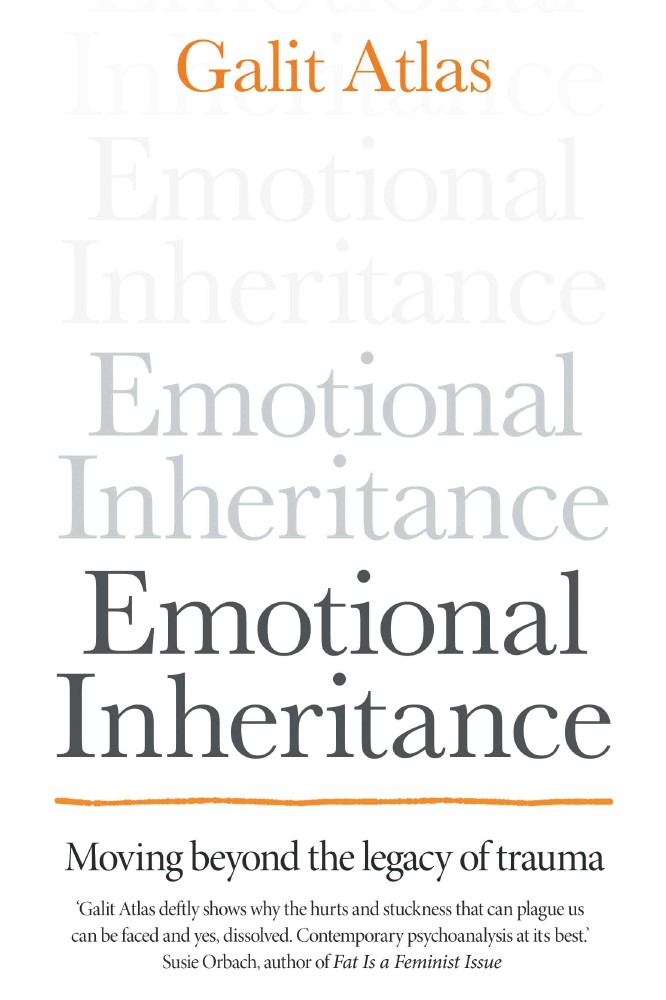1. Emotional inheritance is the transmission of emotions from generation to generation. In studying the intergenerational transmission of trauma we investigate how our ancestors’ unprocessed emotions, especially trauma, are passed down as an emotional inheritance, leaving a trace in our minds and in those of future generations.

Galit Atlas
2. Our emotional inheritance includes experiences that we unknowingly carry with us: the memories, feelings, traumas that we inherit from previous generations and that often keep us from living to our full potential. They affect our mental and physical health, create gaps between what we want for ourselves and what we are able to have, and haunt us like ghosts.
3. We found that people know things that were not explicitly conveyed to them. As children, we know and feel things, but we don’t always recognize their source because our brain is able to pick up nuances that we don’t consciously register. Children monitor their parents and register not only what the parent says, but also what they don’t say directly or what they hide. The omissions, the gaps, are part of what we inherit and often can’t fully identify.
4. Everything we do not consciously know is relived. It is held in our minds and in our bodies and makes itself known to us via what we call symptoms: headaches, obsessions, phobias, insomnia, can all be signs of what we have pushed away to the darkest recesses of our minds. When our minds remember, our bodies are free to forget.
5. The psychological work on our emotional inheritance is one of making connections and gaining the capacity to reflect on feelings and thoughts, especially those which were too painful for the previous generation to feel or know. The privilege of the next generation is that they often can go toward that dissociated pain and recover the ability to reflect and to process, to see reality as it is, and make connections and set themselves free. This can help them break the cycle for future generations.
6. The unconscious wish to heal our ancestors often prevents us from mourning everything we cannot repair, save, or start again: our own childhoods, our parents’ wounds, and our grandparents’ trauma.
7. I invite you to come with me to break the silence, to trace and discover the ghosts that limit our freedom, the emotional inheritance that prevents us from following our dreams, from creating, loving, and living to our full potential.

Emotional Inheritance - Moving beyond the legacy of trauma' by Galit Atlas is published by Short Books.
RELATED: The detrimental impact of loneliness and what we can do about it by Dr Holan Liang


